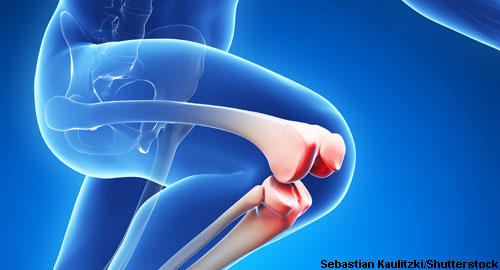 Revision total knee arthroplasty, or knee revision surgery, is more complex than primary total knee arthroplasty. In the next five to 10 years, the frequency of knee revision surgeries is expected to grow 600%, due to the rising incidences of obesity in the U.S. population and more knee replacements in younger populations.1 Approximately one-third of Americans are obese, with a body mass index (BMI) of 30 or more, and about 8% of Americans are morbidly obese, with a BMI exceeding 40.2
Revision total knee arthroplasty, or knee revision surgery, is more complex than primary total knee arthroplasty. In the next five to 10 years, the frequency of knee revision surgeries is expected to grow 600%, due to the rising incidences of obesity in the U.S. population and more knee replacements in younger populations.1 Approximately one-third of Americans are obese, with a body mass index (BMI) of 30 or more, and about 8% of Americans are morbidly obese, with a BMI exceeding 40.2
In the past decade, the number of knee replacements performed in patients 45–64 years old nearly doubled. About 40–45% of total knee replacements in the U.S. are performed in patients under age 65.3 “These patients either tend to be heavier or more active,” says Alexander S. McLawhorn, MD, MBA, an adult reconstruction and joint replacement surgeon at the Hospital for Special Surgery [HSS] in New York. “Both categories of patients place increased demand on their knee replacements, which can lead to premature failure.”
In general, 85% of knee replacements last for at least 20 years.4 Dr. McLawhorn estimates about a 0.5% chance of re-operation per year.
Given the uptick in these surgeries, Dr. McLawhorn says it’s essential to deepen the understanding of knee revision surgery outcomes. A commonly used knee replacement survey, the Knee Injury and Osteoarthritis Outcome Score (KOOS), asks 42 questions and may leave physicians with partial and unusable information secondary to patient burden and fatigue, Dr. McLawhorn maintains. Consequently, researchers at HSS created the KOOS JR. Knee Survey, a shorter seven-question survey that aims to accurately measure knee health, reflecting aspects of pain, symptom severity and activities of daily living relevant to and/or difficult for patients with knee arthritis.
Research presented at American Academy of Orthopaedic Surgeons (AAOS) showed that the KOOS JR. can be extended to knee revision surgery patients and is a validated and efficient tool for assessing knee health in this challenging patient population.5 “The shorter patient survey will help gain necessary data on pain and function for [revision] knee replacement, while reducing the data collection burden on patients and administrators,” Dr. McLawhorn says. Validating the KOOS JR. was the first step to collecting more reliable patient-reported outcomes data on knee revision surgery.
Regarding the shortened questionnaire, Brian Keroack, MD, FACP, FACR, rheumatologist, assistant professor of medicine at Tufts University and Maine Medical Center, in Portland, Maine, says, “In general, long questionnaires are an obstacle to accurate results. Patients’ attention spans wane after the first few questions, and they check boxes with little thought. The KOOS JR. will lend itself to more reliable responses by avoiding questionnaire fatigue. KOOS is somewhat redundant, while the KOOS JR. seems to emphasize the critical information required to assess function.”

